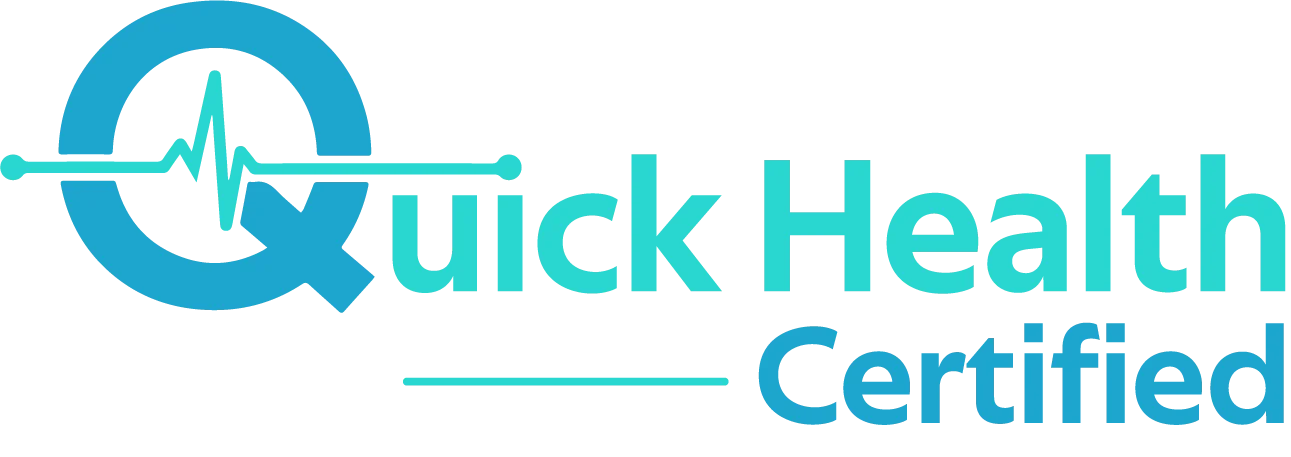Mon-Fri 9am to 6pm CST
by John Doe
31-July-2024

What is a Responsibilities of a Medical Assistant: What you NEED to know
You’ve probably heard of Medical Assistants—those hardworking professionals who help keep the healthcare system running smoothly. But here’s the thing: medical assistant responsibilities are often overlooked, and that’s an understatement.
Understanding these responsibilities could be the key to deciding whether this career is the right fit for you.
Now, before you think, “I already know what a Medical Assistant does,” let me tell you—there’s more to the role than just checking vitals and scheduling appointments.
Medical Assistants play a critical role in patient care, administrative tasks, and ensuring the smooth operation of a healthcare facility.
In this post, we’ll walk you through the key medical assistant job responsibilities—and show you why individuals in this role are so crucial to any and all healthcare teams.
The Core Responsibilities of a Medical Assistant: What You’ll Do on the Job
If you’re considering a career as a Medical Assistant, it’s important to get a clear picture of what the job entails. Medical Assistants are the first point of contact for patients, the backbone of healthcare operations, and trusted partners to doctors and nurses alike.
Let’s break it down into the core areas of responsibility:
-
Patient Care
When you step into a doctor’s office, the first person you often meet isn’t the doctor—it’s the Medical Assistant. And they’re there for a reason: patient care.
Patient Intake
One of the first medical assistant duties is gathering the patient’s medical history. This goes beyond just a simple form. MAs collect vital information about your family health history, allergies, medications, and more. They verify insurance details, schedule follow-up appointments, and make sure everything is in order before you see the doctor.
Prepping Patients for Examination
MAs are also responsible for taking vital signs—blood pressure, heart rate, temperature, and respiration rate. These details provide the doctor with valuable insights into the patient’s overall health. They also ensure patients are comfortable, whether it’s assisting with undressing or helping them get positioned for an examination.
Clinical Procedures
Medical Assistants are trained to assist in various clinical procedures. This includes preparing instruments, positioning patients correctly for exams, and offering support wherever necessary during minor procedures.
They may also perform basic laboratory tests, such as blood draws or urine samples. In certain settings, MAs administer medications, whether oral or through injections.

-
Administrative Duties: The Backbone of Healthcare Operations
While patient care is at the forefront, medical assistant job responsibilities also include a significant amount of administrative work. Without medical assistants handling the behind-the-scenes tasks, healthcare practices wouldn’t be much effective.
Managing Medical Record
One of the most critical administrative duties is maintaining medical records. Medical Assistants ensure that patient information is accurate and up-to-date in both paper and electronic formats.
And with the growing use of Electronic Health Records (EHR), MAs must have proficiency in using these systems to track and update patient information.
Scheduling Appointment
Medical Assistants are often responsible for scheduling appointments and managing the flow of patients through the clinic. They need to keep track of appointments, see to the cancellations, and ensure a particular practice operates as per schedule. This requires strong organizational skills.
Billing and Insurance
Medical Assistants also have a role in insurance verification and billing. It means they make sure that insurance information is accurate and process claims without any hurdles. Without their attention to detail, the financial side of healthcare could easily get out of hand.

-
Specialized Roles (Optional – Depends on work setting and Certifications)
Once you understand the core medical assistant responsibilities, you might choose to specialize in certain areas. This is a great way to add to your skillset and enhance your job prospects.
Phlebotomy
For Medical Assistants interested in laboratory work, phlebotomy is an essential skill. MAs who specialize in phlebotomy are responsible for drawing blood, taking samples, and preparing them for testing.
It requires both technical skill and a steady hand to ensure the process is done accurately and with as little discomfort for the patient.
EKG: Monitoring Heart Health
Medical Assistants in cardiology settings may have additional responsibilities such as performing EKGs (electrocardiograms) .
An EKG measures the electrical activity of the heart, and MAs who are trained in this area play a crucial role in diagnosing heart conditions.
Infection Control and Sterilization
MAs are also responsible for ensuring that all the equipment being used plus the environment is properly sterilized. This is particularly important in surgical settings, where maintaining a sterile environment is immensely important.
Essential Skills for Medical Assistants
To successfully perform the above-given medical assistants’ duties and responsibilities list, certain skills are absolutely essential. Whether it's clinical expertise, communication, or technical proficiency, here’s a breakdown of the skills every Medical Assistant needs:
-
Clinical Proficiency
From vital sign measurement to medication administration, clinical skills are the backbone of the role. A Medical Assistant must be comfortable handling medical instruments, performing lab tests, and even assisting in minor surgeries.
-
Communication Skills/h3>
The ability to communicate clearly and empathetic with patients is a must. Whether it’s explaining a procedure or comforting an anxious patient, effective communication makes all the difference. Active listening, patience, and the ability to explain things in simple, non-jargon language is also key.
-
Technical Skills
With the increasing reliance on technology in healthcare, MAs must be proficient with tools like Electronic Health Records (EHR) systems and office management software like Oracle or eClinicalWorks.
Also, having familiarity with medical equipment and the ability to adapt to new technologies also comes in handy.
Why Becoming a Medical Assistant is a Smart Career Choice
A career that’s both rewarding and in demand is something that’s a bit rare, but with being a medical assistant, it’s quite rewarding. Here's why:
-
Job Growth and Stability
The healthcare industry is booming, and the number of job increase in the medical assistant field is astounding – growing at a faster-than-average rate – at 15% , as per the US Bureau of Labor Statistics.
And as more people seek healthcare services, the demand for skilled Medical Assistants is on a growth trajectory. This growth indicates not only job security but a steady flow of opportunities, too.
-
Competitive Salary
While salaries can vary depending on location and experience, Medical Assistants generally earn a competitive wage. For those who are willing to put in the effort, this role offers a strong earning potential.
-
Chances of career growth
Once you’ve gained experience as a medical assistant, you can explore various career advancement options.
For instance, some MAs go on to become Registered Medical Assistants (RMAs), or they may decide to further their education in areas like nursing or specialized medical fields.
Conclusion
From the front desk to the exam room, medical assistant duties vary but are overall, quite important to the success of any healthcare practice.
If you’re looking for a career that’s both in-demand and rewarding, the time to become a Medical Assistant has never been this ripe.
Start your journey today by exploring online certification programs like a medical assistant bootcamp from Quick Health Certified , and take the first step toward a rewarding future in healthcare.
FAQs
Let's Meet
Please provide us your email address and we'll connect you with a member of our admission team.
Recent Posts
Allied Health in the Rearview Mirror:
What have we Learned over past 10 Years?
30-Jan-2024
Allied Health in the Rearview Mirror:
What have we Learned over past 10 Years?
30-Jan-2024
Allied Health in the Rearview Mirror:
What have we Learned over past 10 Years?
30-Jan-2024
Allied Health in the Rearview Mirror:
What have we Learned over past 10 Years?
30-Jan-2024
Allied Health in the Rearview Mirror:
What have we Learned over past 10 Years?
30-Jan-2024



 Chat
Chat